Kim Jong-nam: North Korean regime's critic in exile
- Published
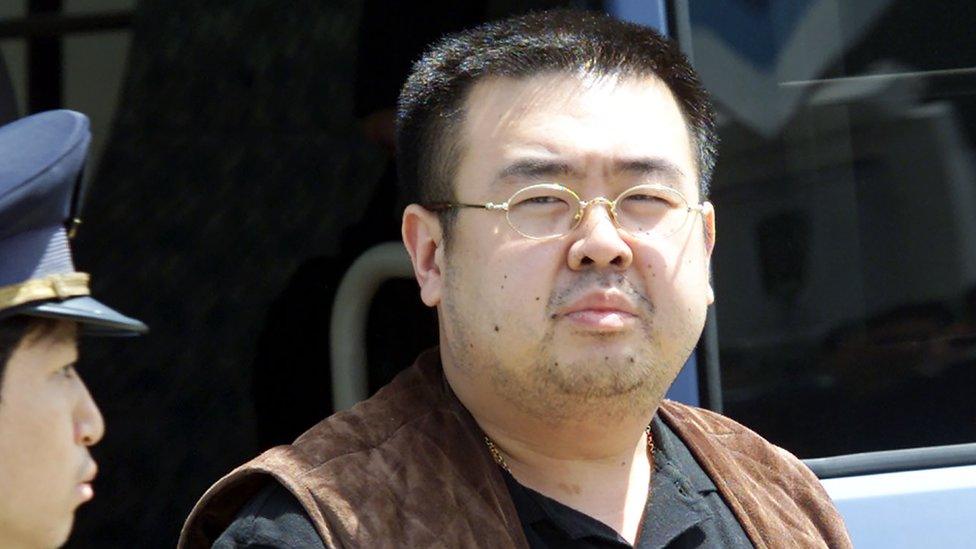
Kim Jong-nam (pictured in 2001) was North Korean leader Kim Jong-il's oldest son
For many years, it was believed Kim Jong-nam was being groomed to succeed his father Kim Jong-il as the next leader of North Korea.
But that appears to have come to an end in 2001, when Kim was caught sneaking into Japan on a fake passport.
It was, it was later claimed, because he wanted to visit Disneyland.
Whatever the reason, Kim appears to have been cast aside, and lived a life in exile until his death in Kuala Lumpur, Malaysia, on 13 February - more than five years after his youngest half-brother, Kim Jong-un, took control of the world's most secretive state.
In that time Kim Jong-nam became one of the regime's highest-profile critics, openly questioning the Stalinist policies and dynastic succession his grandfather Kim Il-sung began crafting in 1948.
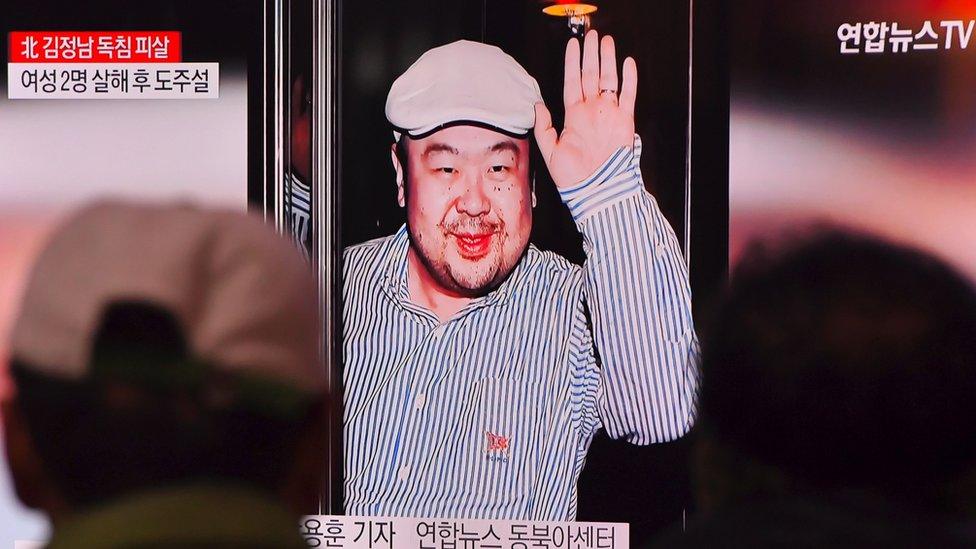
Kim was passed over for succession in favour of his youngest half-brother
Kim was his father's oldest son, born on 10 May 1971 to Sung Hae-rim, a married actress his grandfather disapproved of.
For that reason, the young Kim would be kept behind closed doors, a secret son doted on by his father and paternal aunt Kim Kyung-hee, who went as far as trying to adopt her nephew.
It would later be reported he was also close to his aunt's husband, Chang Song-thaek, who rose to become one of North Korea's most powerful men, before being executed in 2013 by his youngest nephew.
Despite Jong-nam's closeness to his father's family, he was sent away for a decade, studying in Russia and Switzerland, becoming fluent in French and English, before returning to Pyongyang full-time in the late 80s.
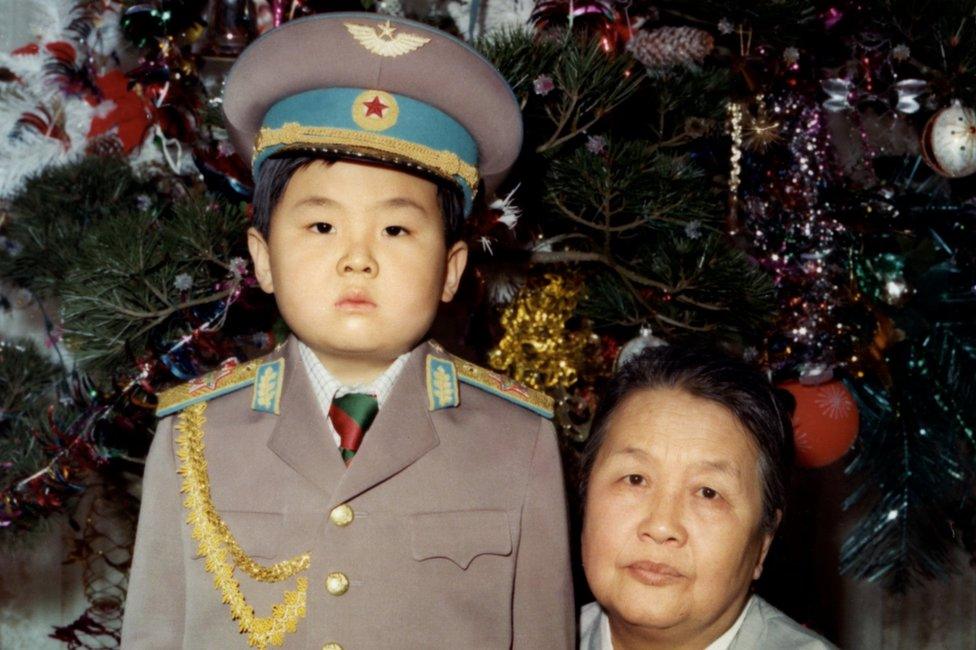
Jong-nam, dressed in an army uniform, poses with his maternal grandmother in January 1975
It was here cracks began to show in his relationship with his father, with Kim Jong-il reportedly becoming so incensed with his son he threatened to send him to one of North Korea's political prisons, or down a coal mine.
For Jong-nam's part, it seems 10 years away from the strict confines of Pyongyang had given him a taste for the outside world. After his death, it was revealed his Facebook profile - created under the name "Kim Chol" - said his favourite musicians were French singer Serge Gainsbourg and Japanese singer Hiroshi Itsuki.
Kim Jong-nam never ended up in a political prison, but after his fall from favour in 2001, it is thought he relocated to Macau, where he is said to have enjoyed the slot machines, although other reports suggested he might be living in Singapore.
After a few years away from his family's power base, he began to openly criticise North Korea. He was quoted by Japanese media in 2010 as saying he opposed ''dynastic succession''.
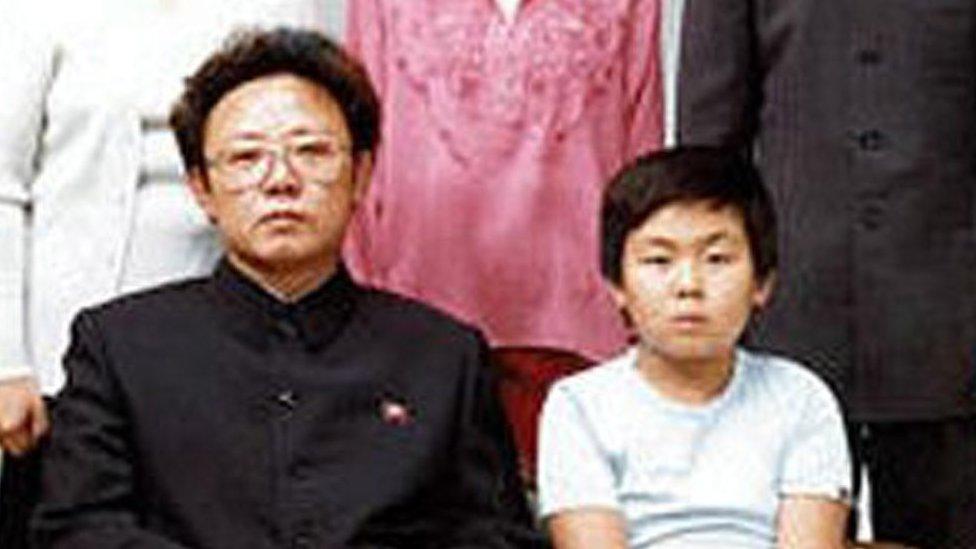
A young Kim poses with his father in a family portrait taken in the early 1980s
Following his father's death in December 2011, he appears to have become bolder. Kim's comments about his younger brother's ability to maintain "absolute power" to a Japanese journalist singled him out as his highest-profile critic.
Kim told Yoji Gomi the country would collapse without reform, but reform would lead to the collapse of the Kim dynasty, while noting his brother would be little more than a puppet figure, used by the ruling elite.
Whether or not Kim was ever actually in line for succession is unclear. But his son, Kim Han-sol, who was born in Pyongyang in 1995 and never met his grandfather, suggested Jong-nam was not interested in the role anyway.
"My dad was definitely not really interested in politics," the teenager told former UN Under-Secretary General Elisabeth Rehn in an interview on Finnish television in 2012.
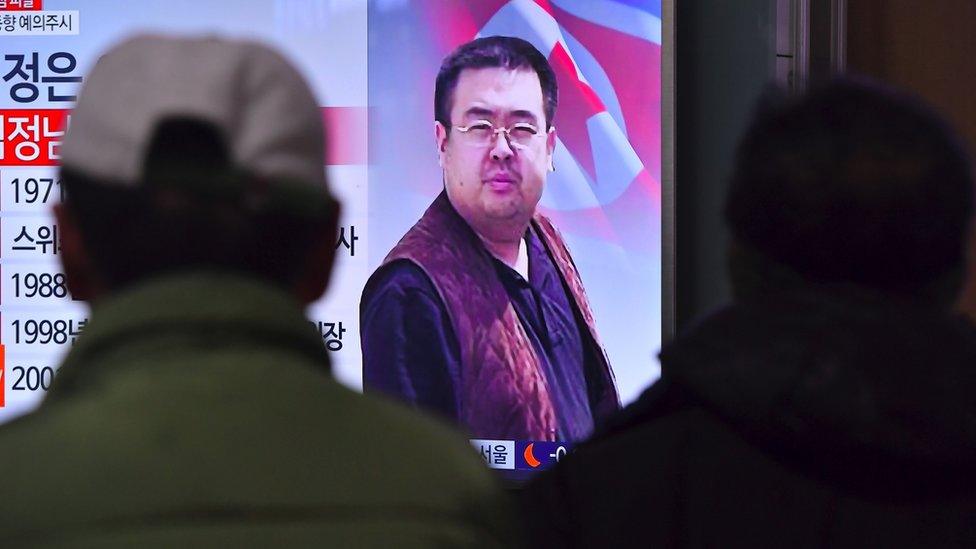
Kim Jong-nam had been critical of the regime
Despite this, Jong-nam appeared to remain a target.
In 2012, a North Korean spy admitted he had been ordered by the secretive state to attack him.
He reportedly went as far as hiring a taxi driver to run Mr Kim over in 2010, but the plot went no further, a court heard.
The whereabouts of Kim Jong-chul, Kim Jong-il's middle son, apparently passed over for succession for being too effeminate, is not known.
He was last spotted at an Eric Clapton concert in London in 2015.
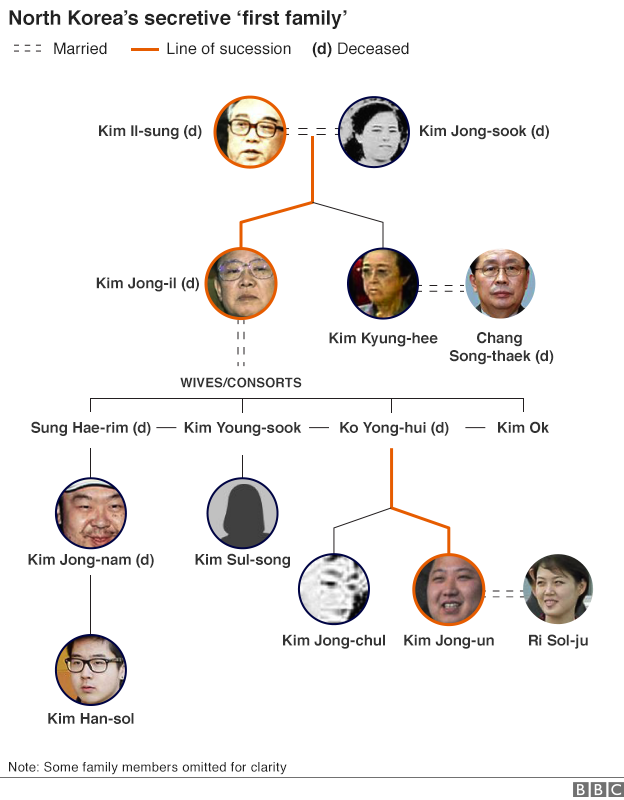
- Published19 October 2012

- Published1 February 2012
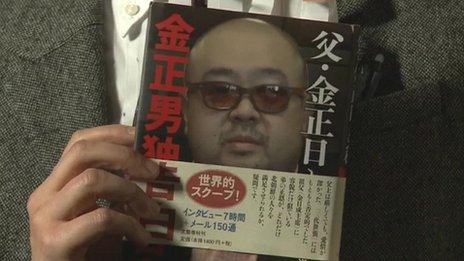
- Published12 October 2010

- Published13 December 2013